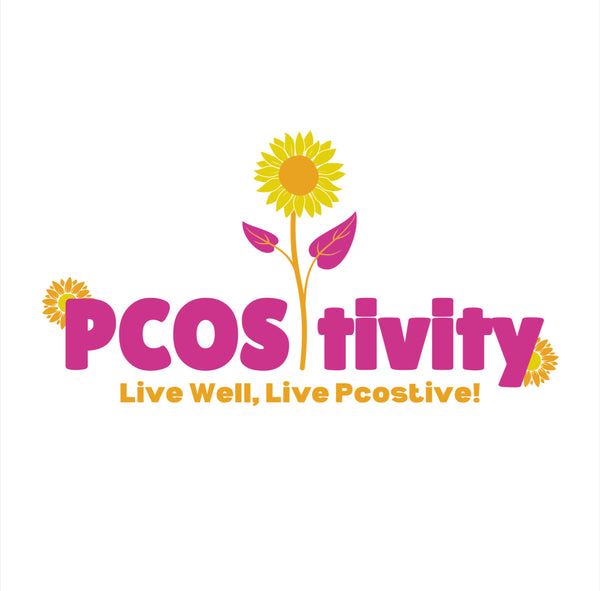Healthy for Who? Navigating Diet Culture, PCOS, and Your Heritage
Share
 When you’re living with PCOS, the idea of eating a “healthy diet” can feel like a never-ending uphill climb. Add the layer of being a Black woman in the West, and the challenges multiply. The concept of “healthy eating” is often rooted in cultural bias, shaped by the majority, and leaves little room for the richness of minority food traditions. Let’s explore why the standard advice might feel off for you and how to reclaim your relationship with food, body, and culture.
When you’re living with PCOS, the idea of eating a “healthy diet” can feel like a never-ending uphill climb. Add the layer of being a Black woman in the West, and the challenges multiply. The concept of “healthy eating” is often rooted in cultural bias, shaped by the majority, and leaves little room for the richness of minority food traditions. Let’s explore why the standard advice might feel off for you and how to reclaim your relationship with food, body, and culture.
1. Cultural Bias in Nutrition Advice
As Black women, many of us have been told that the foods tied to our heritage and culture are “unhealthy.” Soul food, Caribbean cuisine, and African dishes are often dismissed as indulgent or detrimental to health. Meanwhile, eating things like raw kale with balsamic vinegar is hailed as the pinnacle of health.
But let’s be real—our ancestors weren’t eating quinoa bowls or drinking celery juice. They were thriving on nutrient-rich, flavorful meals seasoned with intention. Greens cooked with garlic, peppers, and smoked meats; rice and peas; yams; and plantains all have their place in a balanced, nourishing diet.
The problem isn’t our food—it’s how the narrative around food has been stripped of cultural nuance. The message we’re fed (pun intended) is that only bland, Eurocentric meals are “healthy,” and that’s simply not true. A dash of salt and pepper isn’t seasoning; it’s a suggestion. Our food is vibrant, flavorful, and packed with nutrients when prepared thoughtfully.
2. The Food Pyramid Is Not a Cure-All
Remember the food pyramid from school? We were taught to base our diets on bread, cereal, and pasta while relegating fats to the “use sparingly” zone. The pyramid was designed with a one-size-fits-all mindset, ignoring how different bodies—and cultures—function.
For women with PCOS, especially Black women, this pyramid does little to address our specific needs. For example, loading up on refined carbs (as the old pyramid suggests) can wreak havoc on blood sugar levels. Similarly, the blanket advice to avoid fats misses the fact that healthy fats, like those found in avocado, coconut oil, and fatty fish, are essential for hormone health.
When I visited a nutritionist (funny story, by the way), she suggested I eat plain, unseasoned chicken breast, steamed vegetables, and rice. No seasoning, no spice—just vibes. She acted like adding paprika or a little butter would send my PCOS into overdrive. Needless to say, I didn’t go back.
3. Why Western Diet Culture Feels Foreign
Diet culture is not designed for us. Its roots are in restriction, minimalism, and detachment from food as a source of joy and connection. Many of our cultural traditions celebrate food as a way to bring people together, to heal, and to nourish—not just physically but emotionally and spiritually.
Western diet culture also downplays flavor. The idea that eating bland chicken with a drizzle of olive oil is somehow superior to a hearty plate of jollof rice or okra stew is absurd. These traditional dishes often have a balance of complex carbohydrates, proteins, healthy fats, and a rainbow of vegetables and spices, making them far more nourishing than the so-called “healthy” alternatives.
4. PCOS, Cultural Foods, and a Balanced Approach
Here’s the truth: your cultural foods are not the problem. The way these dishes are prepared may need small tweaks to align with your body’s needs, but that doesn’t mean abandoning your roots.
For instance:
• Love rice? Try pairing it with protein and fiber to stabilize blood sugar.
• Enjoy stews? Add extra veggies or use leaner cuts of meat without sacrificing flavor.
• Big on fried foods? Opt for air-frying or experimenting with healthier oils like avocado or coconut.
You don’t have to give up your traditions. Instead, you can adapt them in ways that honor your heritage and your health.
5. Breaking Free from the “Healthy” Label
We’ve been conditioned to believe that a “healthy diet” means cutting out everything we love. But health is not about deprivation—it’s about creating balance. For Black women, reclaiming our food traditions is an act of self-love and resistance against the mainstream narratives that erase us.
Food isn’t just fuel; it’s a connection to our ancestors, a celebration of culture, and a way to nourish both body and soul. Eating healthy doesn’t mean conforming to a narrow view of wellness. It means learning how your body responds to food, respecting your cultural heritage, and making choices that feel sustainable and joyful.
Key Takeaway: Own Your Journey, Own Your Plate
The narrative around healthy eating is skewed, but you don’t have to buy into it. Eating a healthy diet with PCOS doesn’t mean abandoning your cultural roots or trying to mimic someone else’s idea of wellness. It means tuning into your body, making mindful choices, and honoring your heritage along the way.
At Pcostivity, we celebrate the diversity of experiences and the resilience of women navigating PCOS. Whether you’re reimagining your favorite family recipes or learning to cook in a way that feels good for your body, know that your journey is valid, and your culture is worth preserving.
Remember: food is not your enemy, and you don’t need to trade flavor for health. Both can exist on your plate—and in your life.
